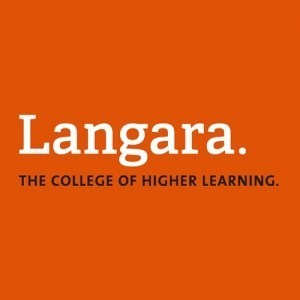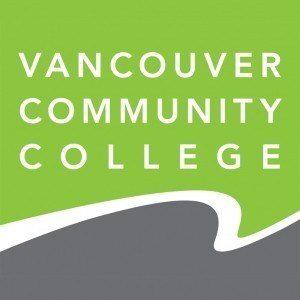Photos of university / #carleton_u
The Bachelor of Arts in Humanities — Great Books at Carleton University offers students an intellectually stimulating program focused on exploring the foundational texts of Western civilization and beyond. This interdisciplinary program emphasizes critical thinking, close reading, and thoughtful analysis of classic works across philosophy, literature, history, and the arts. Students engage deeply with the great ideas that have shaped human thought and culture, developing their skills in interpretation, argumentation, and essay writing. Through a comprehensive curriculum, learners examine works from ancient to modern times, gaining insight into diverse perspectives and cultural contexts. The program encourages active discussion, debate, and reflection, fostering a vibrant academic community committed to exploring timeless questions about human existence, morality, society, and knowledge. Designed for students passionate about understanding the depth and complexity of human ideas and expressions, the Humanities — Great Books program also prepares graduates for diverse career paths in education, writing, research, public policy, and more. With a flexible course structure, students can tailor their studies to their interests while benefiting from small class sizes and dedicated faculty mentorship. The program emphasizes the development of critical analytical skills, ethical reasoning, and effective communication—traits invaluable in today's interconnected world. Graduates of this program leave with a profound appreciation for cultural heritage and a strong foundation for lifelong learning and civic engagement. Whether aiming for advanced studies or professional pursuits, students in the Humanities — Great Books program at Carleton are equipped to think deeply, act ethically, and contribute thoughtfully to society.
The Great Books program at Carleton University offers students an in-depth exploration of the foundational texts of Western civilization, spanning philosophy, literature, history, and the arts. This interdisciplinary program is designed to foster critical thinking, close reading, and articulate discussion skills by engaging directly with original works authored by some of the most influential thinkers and writers from antiquity to the modern era. Students in this program will have the opportunity to study a diverse array of classical and contemporary texts, including works by Plato, Aristotle, Cicero, Dante, Shakespeare, and Kafka, among many others. Through guided seminars, collaborative debates, and individual research projects, participants will develop a nuanced understanding of the historical, cultural, and philosophical contexts that shaped these texts. The curriculum emphasizes analytical interpretation, appreciative critique, and the development of a well-rounded intellectual foundation.
The program aims to cultivate skills applicable across numerous fields, including law, education, writing, and public service, by nurturing a deep appreciation for language, argumentation, and ethical reflection. Students will also learn research methodologies specific to humanities scholarship, including textual analysis and historical contextualization. The Great Books program at Carleton encourages active engagement with challenging ideas, fostering a community of curious minds committed to exploring the fundamental questions of human existence, morality, governance, and art. Graduates of this program will be equipped with strong literary and philosophical literacy, critical reasoning skills, and an appreciation for diverse perspectives. This program is ideal for students passionate about literature, philosophy, history, or those seeking a broad intellectual foundation that emphasizes critical inquiry and lifelong learning.
Program requirements for the Humanities — Great Books at Carleton University include a combination of core courses, electives, and supplementary academic activities designed to foster critical thinking, literary analysis, and philosophical understanding. Students are typically required to complete a set number of credits in core humanities disciplines, including courses in literature, philosophy, history, and cultural studies, emphasizing close reading, textual analysis, and scholarly discussion. The program encourages engagement with classical texts and major works from diverse periods and regions, often through seminars and discussion-based classes that promote analytical skills and interpretative techniques.
In addition to foundational courses, students must select a specified number of electives, which allow for specialization in areas such as literature, philosophy, or cultural studies, enabling a tailored educational experience aligned with their interests and career goals. The program also emphasizes the development of communication skills through assignments, presentations, and written essays, which are integral to successfully completing coursework.
Graduate students pursuing advanced studies within the program are often required to undertake comprehensive exams, a thesis, or major research projects that demonstrate a deep understanding of the Great Books tradition and its relevance to contemporary issues. Moreover, students are encouraged to participate in seminars, workshops, and colloquia that promote scholarly exchange and critical dialogue.
Prerequisite knowledge typically includes a solid background in introductory humanities or related disciplines; however, specific requirements may vary depending on the student's academic history. Departmental policies may also stipulate mandatory language proficiency in relevant classical or modern languages, depending on the focus of the coursework. Overall, the program aims to produce graduates who are well-versed in historical texts, critical methodologies, and interdisciplinary perspectives, ready for careers in academia, education, publishing, or cultural analysis.
Want to improve your English level for admission?
Prepare for the program requirements with English Online by the British Council.
- ✔️ Flexible study schedule
- ✔️ Experienced teachers
- ✔️ Certificate upon completion
📘 Recommended for students with an IELTS level of 6.0 or below.
Financing for the Great Books in Humanities program at Carleton University is designed to support students through a combination of internal and external funding sources. Students are encouraged to explore various avenues of financial assistance including scholarships, bursaries, grants, and employment opportunities. Carleton University offers a range of scholarship programs based on academic merit, financial need, or specific criteria related to the Humanities discipline. For example, incoming students may qualify for entrance scholarships that recognize academic excellence, while current students can access faculty-specific awards or departmental bursaries aimed at supporting continued studies.
In addition to university-based awards, students are encouraged to seek external funding such as government-sponsored grants and scholarships, private foundations, and industry sponsorships, which can significantly offset tuition fees and living expenses. The government of Canada and provincial governments provide various loan and grant programs designed to make higher education more accessible. These may include the Canada Student Loan Program and provincial student aid programs, which offer low-interest loans and partial grants based on financial need.
Part-time employment opportunities are also available on and off campus, allowing students to work while studying and gain valuable experience. The university’s Career Services Centre provides resources and workshops to assist students in securing part-time jobs or internships related to the Humanities and critical thinking fields. Moreover, many students benefit from work-study programs that facilitate employment during academic terms, which can contribute to financing their studies.
Students in the program are also advised to consider interdisciplinary funding opportunities that support research projects or graduate studies. For those pursuing advanced degrees, graduate assistantships, research assistantships, and teaching assistantships offer a significant source of income while enhancing academic experience. These opportunities often include tuition remission and stipends, further reducing the financial burden.
Overall, Carleton University’s comprehensive approach to financing education involves multiple sources of support designed to ease the financial burden on students enrolled in the Great Books in Humanities program. Students are encouraged to actively seek out and apply for these funding options early in their academic careers to maximize their financial support and focus on their studies.
The Humanities — Great Books program at Carleton University offers students an in-depth exploration of classic texts from the Western literary canon, philosophy, and historical thought. This interdisciplinary program is designed to cultivate critical thinking, analytical skills, and a deep appreciation for classical and contemporary ideas that have shaped Western civilization. Students engage with original texts from authors such as Plato, Aristotle, Dante, Shakespeare, Voltaire, and many others, fostering a comprehensive understanding of fundamental human questions and societal developments throughout history. The curriculum emphasizes close reading, thoughtful discussion, and writing, enabling students to develop nuanced interpretations and articulate their insights effectively.
Throughout the program, students have the opportunity to examine diverse themes such as ethics, politics, art, science, and religion, connecting these areas through the lens of the great books. The program encourages active participation in seminars, presentations, and collaborative projects, which enhance communication skills and intellectual engagement. In addition to academic excellence, the program strives to develop ethical awareness, cultural literacy, and an appreciation of the historical contexts surrounding these foundational texts.
Students are prepared for careers in education, law, public service, writing, and other fields requiring critical thinking and strong communication abilities. Carleton University’s Department of Humanities provides dedicated faculty with expertise in literature, philosophy, history, and related disciplines, offering mentorship and support tailored to students’ academic and professional goals. The program integrates traditional lecture-based courses with interactive learning environments, utilizing modern resources and libraries to access a wide range of editions, secondary literature, and digital archives.
The Humanities — Great Books program also emphasizes the importance of interdisciplinary thinking, encouraging students to draw connections between ideas across different periods and civilizations. This holistic approach helps develop well-rounded individuals capable of analyzing complex issues from multiple perspectives. Students are often encouraged to participate in seminars, attending guest lectures and conferences that enrich their understanding. Graduates of the program frequently pursue further studies or enter professions where analytical reasoning, cultural awareness, and persuasive communication are valued.
Overall, Carleton’s Humanities — Great Books program stands as a rigorous and enriching academic experience dedicated to exploring the core texts that continue to influence contemporary thought and society. It provides students with the skills and knowledge necessary to become informed, thoughtful citizens and leaders in various professional arenas.




